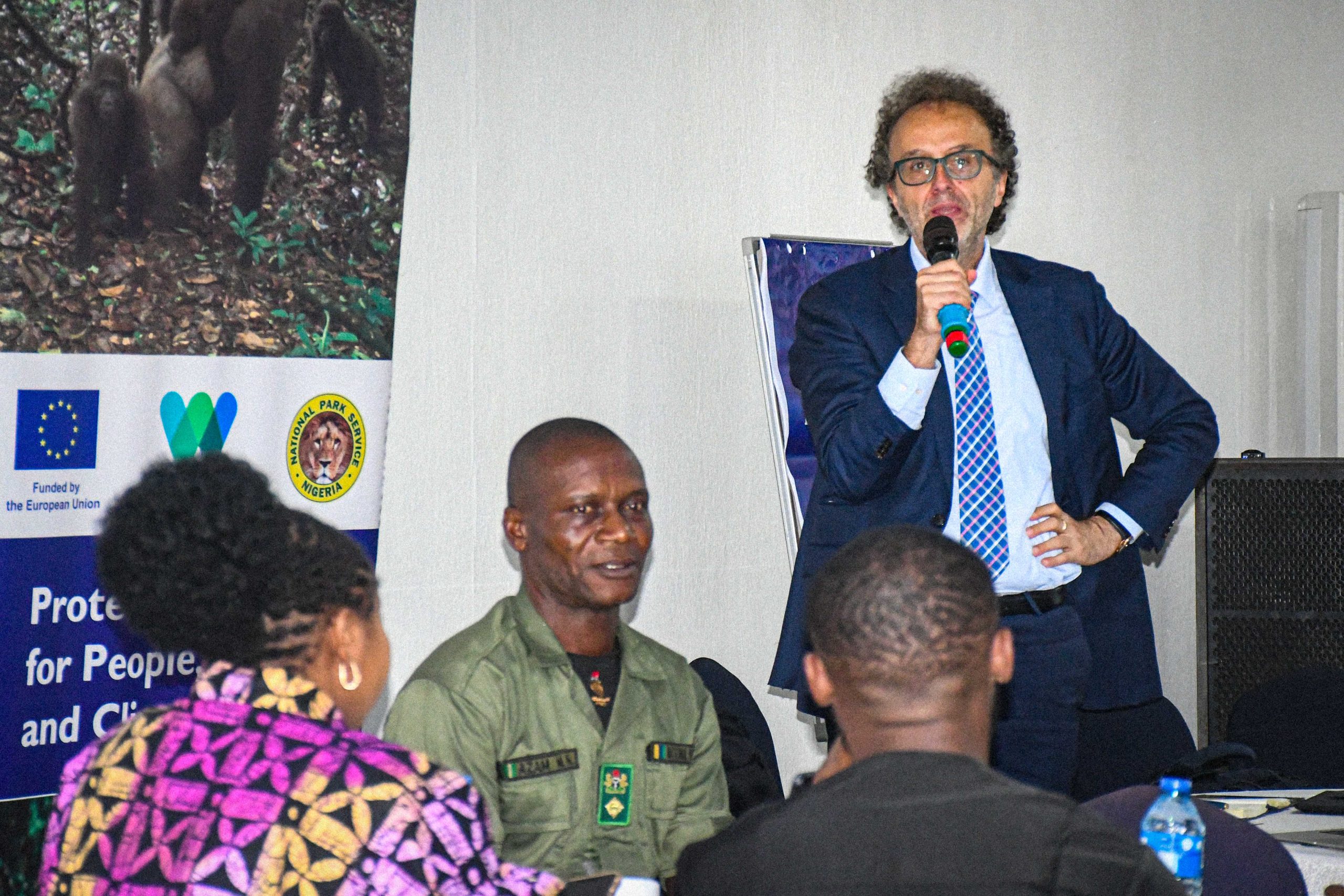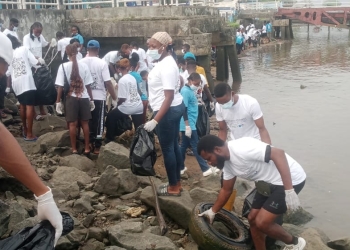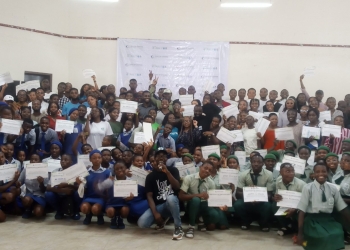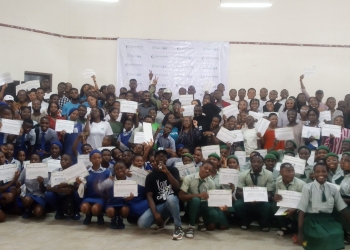De Luca Massimo, Head of Cooperation at the Delegation of the EU, making a presentation at the stakeholders’ meeting on Thursday.
By Anietie Akpan
The European Union (EU) will with effect from December 2024 begin to implement regulation aims at ensuring that commodities imported into the EU are not driving deforestation and forest degradation.
With this regulation coming, hard times now await Cocoa farmers who indulge in reckless cutting down of forest areas in the state to expand their cocoa farms.
This was part of the resolution of the delegation of the EU that invited 35 stakeholders to a conversation about the impact of the European Union Deforestation Regulation (EUDR) in Calabar on Thursday September 26.
The regulation, which aims at ensuring that commodities imported into the EU are not driving deforestation and forest degradation, is due to come into force in December 2024.
“Through traceability, EUDR aims to ensure that imported products are produced in a sustainable way by a strong and productive chain, for the benefit of both producers and forests” explained Massimo De Luca, Head of Cooperation at the Delegation of the European Union to the Federal Republic of Nigeria and ECOWAS.
The meeting noted that in Cross River State, cocoa accounts for 85 percent of farmers’ income, but it is also the main factor in the loss of over 12,800 hectares of forest every year.
That due to aging cocoa farms, which make them less productive, farmers try to compensate for the loss of productivity by cutting down more forest each year to extend existing farms.
“Increasing productivity of existing farms is critical to combining conservation of the last remaining forest areas with secure livelihoods for small holders” noted Massimo de Luca.
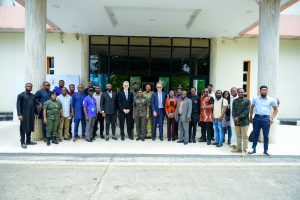
Stakeholders in a group photograph after the meeting.
Alongside the EU, the Wildlife Conservation Society (WCS) presented the results of its support for the cocoa industry in the vicinity of Cross River National Park.
Since 2020, the WCS supported 615 cocoa farmers and provided over 150,000 improved cocoa seedlings to boost productivity of farms that do not encroach on forests.
Andrew Dunn, Country Director of the WCS, explained that “by making cocoa more sustainable, we can protect livelihoods as well as forests and wildlife corridors. Cross River National Park is a proposed World Heritage Site, an invaluable part of Nigeria’s natural heritage, and we need to protect it.”
He said the WCS has also started to explore opportunities for collaboration with government, cocoa companies and market associations like the Cocoa Association of Nigeria (CAN) and Cocoa Farmers Association of Nigeria (CFAN) to improve traceability and compliance with EU Deforestation Regulations.
Stephen Kembre, Sustainability Manager East for Tulip (ECOM), commented during the event: “EUDR will add value to what are already doing. We are working to update our maps of cocoa farms, set up an accurate baseline, and we are building a more transparent traceability system.”
Following fruitful exchanges, stakeholders defined priorities to meet the EUDR requirements, including harmonized efforts to improve mapping of cocoa farms and clarification of protected area boundaries.
Agreement was reached to continue the discussion at the Calabar Cocoa Festival in October.
